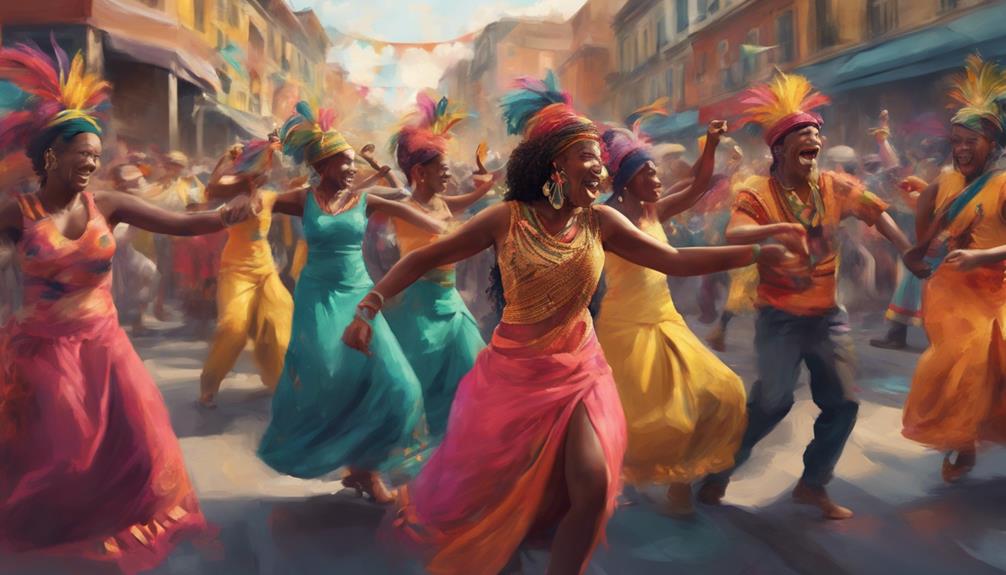Music's role in culture is a multifaceted and intricate phenomenon that transcends mere entertainment. It intertwines with societal norms, values, and traditions, shaping collective identities and influencing individual experiences. To grasp the full extent of music's impact on culture, one must explore its cognitive, emotional, and social dimensions. By examining the interplay between music and cultural practices, we can unravel the intricate web of connections that bind music to our shared human experience.
Key Takeaways
- Music shapes societal identity and fosters communal bonds.
- It transmits cultural heritage and historical knowledge.
- Music serves as a universal language uniting diverse cultures.
- Music plays a crucial role in identity formation and cultural celebrations.
Significance of Music in Culture
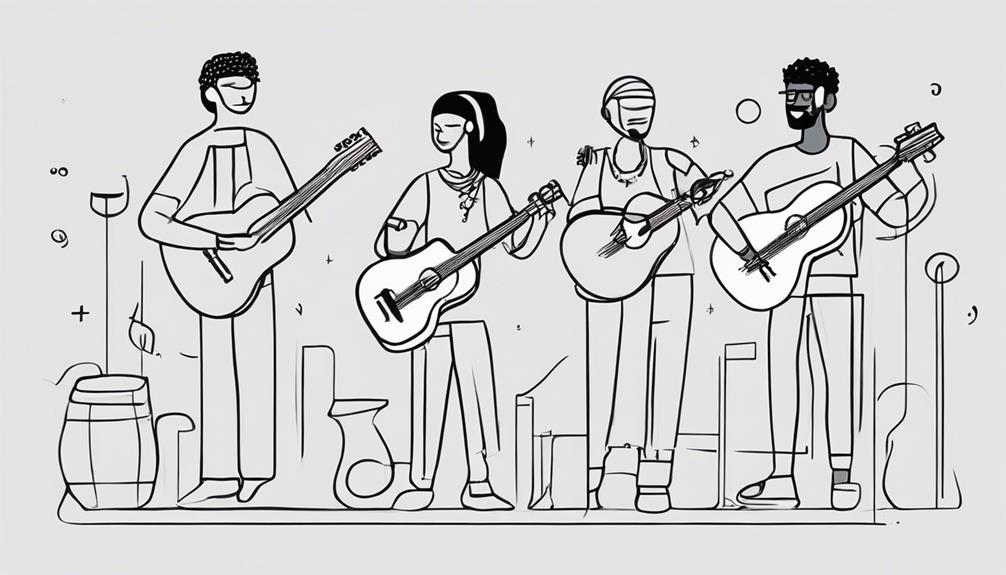
Music's role in culture is profound, serving as a conduit for the expression of values, beliefs, and traditions that shape societal identity and foster communal bonds. Within cultural contexts, music acts as a powerful medium through which individuals communicate and reinforce shared cultural values and beliefs. It serves as more than mere entertainment, playing a significant role in social bonding by creating a sense of unity among community members. Through music, people emotionally connect, share experiences, and strengthen social ties, ultimately enhancing the fabric of society.
Furthermore, music holds the key to preserving and passing down cultural heritage from one generation to the next. It is a vital tool for storytelling, enabling the transmission of stories, traditions, and historical knowledge that define a culture's identity. By encapsulating the essence of a society's values and beliefs, music not only influences societal norms but also fosters a sense of belonging and unity among individuals, reinforcing the importance of cultural continuity and cohesion.
Historical Roots of Musical Expression
The origins of musical expression can be traced back to ancient civilizations such as Mesopotamia and Egypt, where early forms of musical instruments were utilized in various cultural and ritualistic contexts. Musical expression played a significant role in these societies, being intertwined with religious practices, storytelling, and social gatherings. Instruments like flutes, drums, and lyres were not only used for entertainment but also held symbolic and spiritual meanings.
Throughout history, different cultures developed unique musical styles, scales, and rhythms that reflected their beliefs and traditions. This diversity in musical expression highlighted the creativity and artistic communication of human societies. The evolution of music showcases how it has been an integral part of cultural identity and expression. It is through the historical roots of musical expression that we can understand the deep connection between music and culture, and how it has evolved to become a universal language that transcends boundaries and unites people across the globe.
Cultural Diversity in Musical Practices
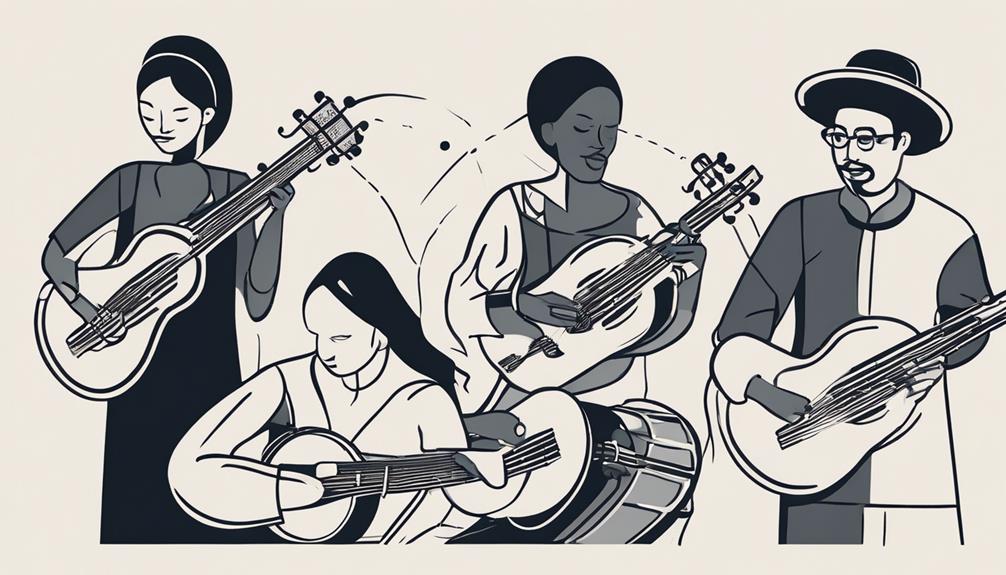
Cultural diversity in musical practices encompasses a wide array of global influences, contrasting traditional and modern musical expressions. Various cultures maintain their heritage through the preservation of classical music forms, while also integrating contemporary elements to adapt to evolving artistic trends. Understanding the interplay between traditional and modern musical influences provides insights into how cultural diversity shapes musical practices worldwide.
Global Music Influences
Global musical influences reflect a mosaic of traditions and styles that span continents, showcasing the intricate tapestry of diverse cultural expressions. Cultural exchange through music allows for the blending of musical elements, leading to the creation of fusion genres and new musical forms. Globalization has facilitated the sharing of music across borders, leading to the appreciation and integration of diverse musical traditions. Music serves as a platform for cultural expression, preserving heritage, and promoting intercultural understanding and appreciation. The rich tapestry of global music influences highlights the interconnectedness of cultures and the universal appeal of music in bridging cultural differences.
| Global Music Influences | Cultural Exchange | Intercultural Understanding |
|---|---|---|
| Diverse musical practices | Blending of musical elements | Appreciation of diverse traditions |
| Fusion genres creation | Sharing music across borders | Promotion of cultural expression |
| Integration of musical styles | Preservation of heritage | Bridging cultural differences |
Traditional Vs. Modern
Within the realm of musical practices, the dichotomy between traditional and modern forms presents a dynamic interplay of historical roots and contemporary innovations. Traditional music often prioritizes oral transmission, community involvement, and cultural preservation, serving as a vessel for maintaining cultural identity and heritage through history, rituals, and customs. In contrast, modern music integrates technology, globalization, and diverse influences, reflecting current societal values and artistic expressions. While traditional music caters to specific ceremonial or social functions within a community, modern music caters to a broader, diverse audience with varying tastes and preferences. The blending of traditional elements with innovation and experimentation in modern music highlights a nuanced evolution in musical practices, where cultural preservation meets contemporary creativity.
Music as a Form of Communication
How does music function as a powerful form of non-verbal communication within societies worldwide? Music serves as a universal language that transcends linguistic barriers, allowing for the expression of emotions, stories, and cultural values across diverse communities. Different musical genres and styles play a significant role in conveying unique cultural identities and historical narratives, fostering a sense of belonging and pride among individuals. Through the intricate combination of rhythm, melody, and lyrics, music can effectively communicate complex messages and social commentary, sparking conversations and reflections within society. Moreover, individuals use music as a medium to share personal experiences, struggles, and triumphs, establishing connections and empathy with listeners globally. By acting as a form of non-verbal communication, music enables cross-cultural understanding and unity through shared musical experiences, emphasizing the profound impact of music on shaping cultural values and fostering relationships within and among societies.
Ritualistic Functions of Music
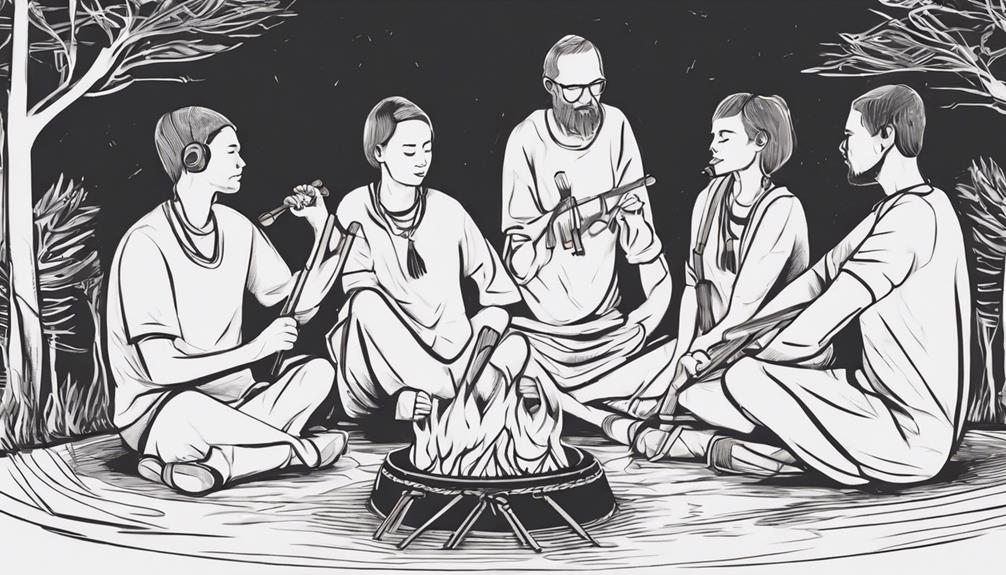
Music's role in ritualistic functions is essential, serving to enhance and enrich ceremonial practices through the creation of a sacred atmosphere and the promotion of cultural unity and belief reinforcement. In ritualistic settings, music plays a crucial role in setting the tone for significant cultural events by invoking spiritual connections and providing a backdrop for communal experiences. Ritualistic music often involves specific instruments, chants, and rhythms unique to the cultural context, adding layers of meaning and symbolism to the rituals. These musical performances not only serve the immediate purpose of the ceremony but also act as a cultural marker, preserving traditions and heritage for future generations. Through the use of music in rituals, communities can maintain a connection to their past, reinforce shared beliefs, and strengthen their cultural identity. Overall, music in ritualistic functions plays a multifaceted role in shaping cultural practices and promoting a sense of unity among participants.
Influences of Music on Social Behavior
Examining the impact of music on social behavior reveals significant insights into the dynamics of human interaction and community cohesion. Music plays a crucial role in promoting social bonding and group cohesion by facilitating collective rituals and synchronized actions. When individuals engage in synchronous musical activities, it leads to the enhancement of prosocial behavior and the strengthening of community spirit. Additionally, listening to music in the company of family or peers not only fosters pleasure but also reinforces social connections, contributing to a sense of belonging and togetherness within the community. Inclusive musical events further blur the boundaries between performers and the audience, encouraging active participation and fostering unity among individuals. Moreover, music has the power to prime individuals for intense performances in communal rituals, thereby deepening group cohesion and emotional connections within the social fabric. Overall, music serves as a powerful tool in shaping social behavior and promoting a sense of community among individuals.
Emotional Impact of Music in Society
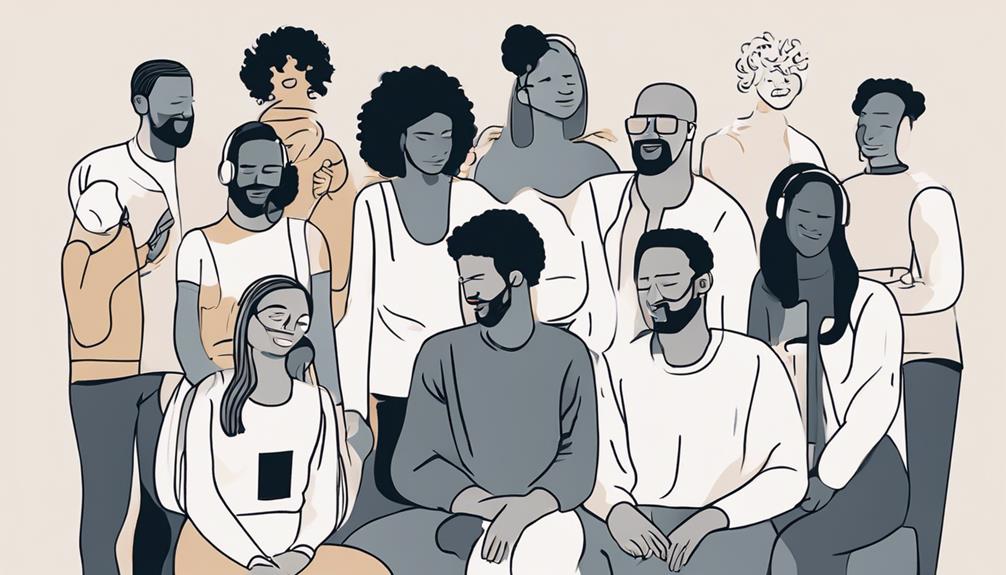
The emotional impact of music on society is a well-documented phenomenon that influences individuals' mood, well-being, and overall mental health. Music has the remarkable ability to evoke a wide range of emotions, from joy and excitement to sadness and nostalgia. Different genres and styles of music can elicit diverse emotional reactions in listeners, reflecting the complexity of human emotions. This emotional influence of music extends beyond mere entertainment; it has therapeutic implications as well. Music therapy, a well-established form of treatment, harnesses the emotional power of music to help individuals cope with emotional challenges, trauma, stress, anxiety, and depression. Listening to music has been shown to have a calming effect on the mind, reducing levels of cortisol (the stress hormone) and promoting relaxation. In society, the emotional impact of music plays a crucial role in enhancing emotional well-being and fostering a sense of connection and understanding among individuals.
Role of Music in Identity Formation
The integral role of music in shaping individual and collective identities within cultural groups underscores its profound impact on identity formation processes. Music serves as a vehicle through which individuals express and explore their cultural background, influencing their sense of belonging and self-identification. By adopting musical preferences, styles, and traditions that resonate with their cultural heritage, individuals solidify their connection to their roots, history, and community. This dynamic process of cultural identity formation through music involves a delicate balance between preserving traditions, adapting to modern influences, and fostering innovation. Through music, individuals not only convey their beliefs, values, and experiences but also establish a shared cultural identity that binds them with others in their cultural group.
| Role of Music in Identity Formation | |
|---|---|
| Music helps shape individual identities based on cultural backgrounds | |
| It fosters a sense of belonging and community through shared musical experiences | |
| Cultural identity formation through music involves a dynamic process of adaptation, innovation, and tradition preservation |
Music's Role in Celebrations and Ceremonies
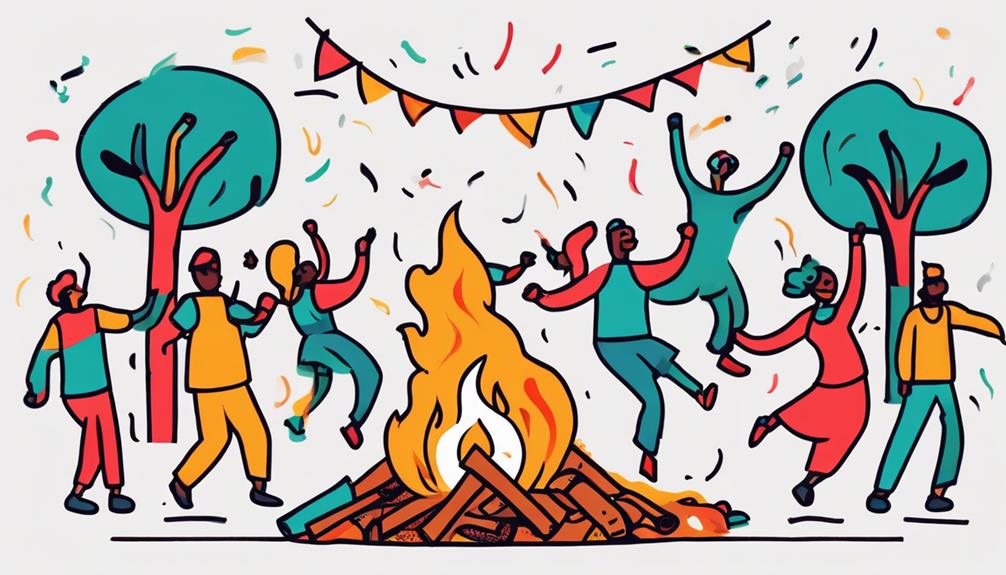
Music serves as a fundamental element in the fabric of cultural celebrations and ceremonies, functioning as a vehicle for conveying traditions and values. Festive music traditions, ritualistic musical performances, and curated cultural event soundtracks play pivotal roles in enhancing the emotional resonance of these communal gatherings. By adhering to specific cultural norms and reflecting the unique histories and identities of communities, ceremonial music contributes significantly to the preservation and transmission of cultural heritage.
Festive Music Traditions
Playing a vital role in cultural expressions and societal gatherings, festive music traditions embody the essence of shared celebrations and ceremonial observances. Festive music traditions are deeply intertwined with cultural celebrations, serving as a cornerstone for marking significant events and fostering community bonds. Here are key points highlighting the importance of festive music traditions:
- Festive music creates a celebratory atmosphere and fosters unity among participants.
- Traditional instruments, rhythms, and melodies unique to each culture are often incorporated.
- The lyrics and themes of festive music reflect cultural values and historical narratives.
- These musical traditions, passed down through generations, help preserve cultural identity and strengthen community cohesion.
Ritualistic Musical Performances
Festive music traditions serve as cultural touchstones, seamlessly transitioning into ritualistic musical performances that intricately weave music's profound role in shaping and defining celebrations and ceremonies. Ritualistic musical performances are integral to cultural celebrations, marking significant events within communities. Music in rituals helps establish a sacred ambiance, eliciting emotions, beliefs, and spiritual connections among participants. These performances, which often involve specific instruments, chants, dances, and symbolic gestures, hold deep cultural significance. Traditional music accompanying rites of passage, weddings, funerals, and other ceremonies reflects cultural values and traditions. By utilizing music in rituals, communities express cultural identity, preserve traditions, and foster community bonding, thereby reinforcing social cohesion and collective memory. Ritualistic musical performances play a vital role in upholding cultural practices and strengthening communal ties.
Cultural Event Soundtracks
The selection of specific soundtracks for cultural events plays a pivotal role in shaping the ambiance and significance of various celebrations and ceremonies within a community.
- Music played at cultural events reflects the values, traditions, and history of the community, creating a shared emotional experience.
- Soundtracks for ceremonies are carefully selected to evoke specific emotions, enhance rituals, and honor cultural practices.
- The choice of music for cultural events plays a crucial role in conveying the essence of the occasion and connecting participants on a deeper level.
- Cultural event soundtracks serve as a unifying element, bringing individuals together and reinforcing a sense of belonging and identity within the community.
Music as a Reflection of Cultural Values
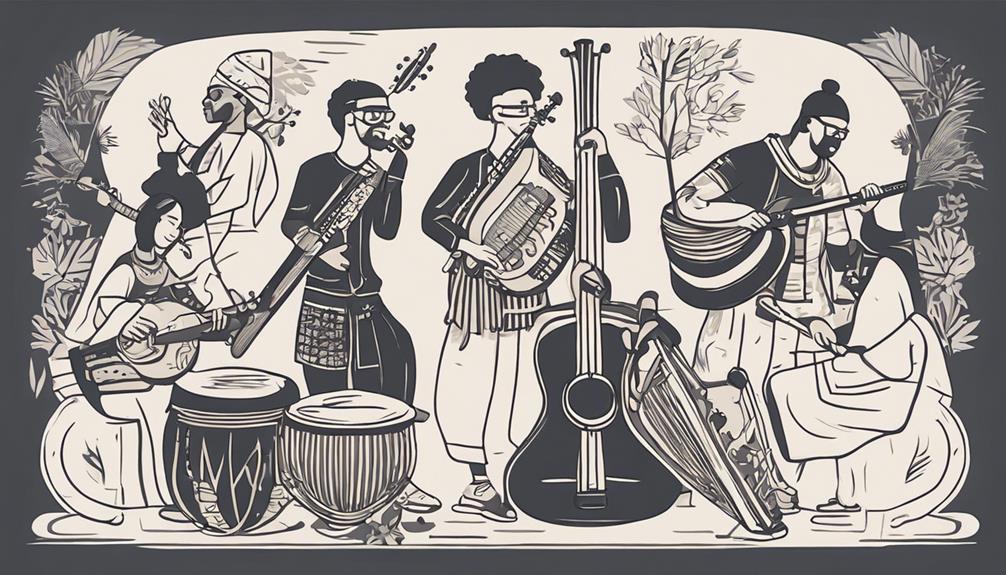
Music, as a profound cultural artifact, intricately weaves together the intricate tapestry of societal values and beliefs. Through its melodies, rhythms, and lyrics, music reflects the cultural values and identity of a society. It serves as a mirror, capturing the essence of a culture by expressing its beliefs, traditions, and norms. Cultural values and narratives are preserved and transmitted across generations through music, showcasing the evolution and continuity of societal principles. The diversity and richness of cultures are vividly portrayed through various musical genres and styles, each offering a unique perspective on the world. Music acts as a powerful communicator of cultural identity, allowing individuals to connect with their heritage and roots. By observing the different musical expressions across cultures, one can gain insight into the values, ideologies, and emotions that shape societies worldwide. In essence, music stands as a reflection of cultural values, providing a window into the collective soul of a community.
Music's Influence on Cultural Evolution
Influencing societal transformation and cultural progress, music serves as a dynamic force shaping the evolution of collective beliefs and values. Music's influence on cultural evolution is profound, impacting various aspects of society.
- Preservation of Musical Traditions: Music acts as a vessel for passing down cultural heritage and traditions from one generation to another, ensuring the preservation of unique musical styles and practices.
- Facilitation of Cultural Exchange: Through music, different cultures interact, share, and exchange musical ideas, leading to a rich tapestry of global musical diversity and collaboration.
- Reflection of Societal Changes: Musical expressions often mirror the shifts in societal norms, values, and ideologies, providing a platform for artists to address pressing social issues and advocate for change.
- Shaping of Collective Identity: Music plays a crucial role in shaping collective identities by fostering a sense of belonging and unity among communities, influencing cultural cohesion and solidarity.
Music's influence on cultural evolution extends beyond mere entertainment, contributing significantly to the complex interplay of cultural dynamics, societal changes, and the preservation of musical heritage.
Globalization's Impact on Musical Traditions
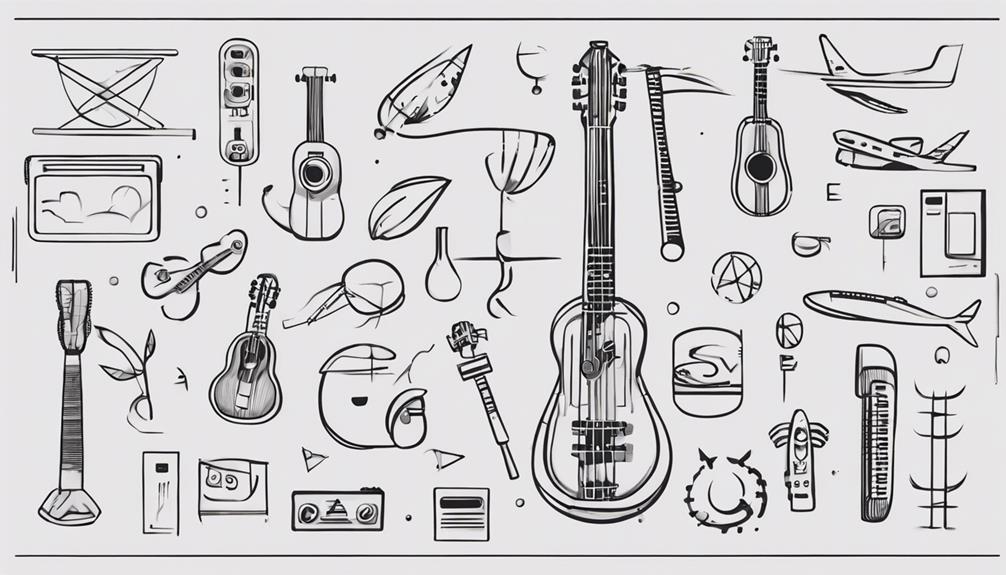
Globalization has significantly altered the landscape of musical traditions worldwide, leading to a complex interplay between tradition and innovation. The effects of cultural exchange on traditional music genres are evident in the emergence of fusion styles that incorporate elements from different cultures. However, this dynamic process also presents challenges in preserving the authenticity and integrity of local musical traditions amidst the overwhelming influence of global trends.
Tradition Vs. Innovation
With the impact of globalization on musical traditions, the interplay between preserving historical roots and embracing contemporary innovations has become a focal point in the evolution of cultural music landscapes.
- Blending Cultures: Traditional musical elements are being fused with modern innovations, resulting in the emergence of new hybrid musical styles.
- Evolving Musical Traditions: Artists are incorporating diverse cultural influences and experimenting with new genres and techniques, leading to the evolution of traditional music forms.
- Adaptation of Instruments: Traditional musical instruments are being adapted and integrated with electronic technologies to create innovative sounds and compositions.
- Global Dissemination: Digital platforms and social media are facilitating the global dissemination of traditional music, expanding its reach and fostering cross-cultural collaborations.
Cultural Exchange Effects
The exchange of musical traditions in the era of globalization has catalyzed a dynamic convergence of diverse cultural styles, giving rise to innovative fusion genres and cross-cultural dialogues within the music landscape. Traditional music from various cultures is now shared globally through digital platforms, influencing mainstream music trends. Collaborations between artists from different cultural backgrounds result in cross-cultural musical innovations and unique artistic expressions. Global music festivals and events play a significant role in showcasing a blend of traditional and contemporary music, promoting cultural exchange and appreciation on a global scale. The accessibility of music streaming services further enables listeners to explore and discover traditional music from around the world, contributing to the awareness and preservation of cultural diversity.
Preservation Challenges
The rapid globalization of musical influences has heightened the urgency of addressing the preservation challenges faced by traditional musical traditions around the world. Globalization's influence on traditional musical traditions presents several obstacles that impede their preservation and continuity:
- Loss of cultural authenticity and uniqueness due to the homogenizing effects of globalization.
- Struggles to maintain relevance and visibility amidst the dominance of Western commercial music.
- Cultural appropriation and misrepresentation of traditional music as a result of globalized cultural exchanges.
- Difficulties in preserving and promoting traditional music in the face of globalized media and commercialization trends.
These challenges underscore the pressing need for concerted efforts to safeguard and revitalize traditional musical heritage in a rapidly changing global landscape.
Preserving Cultural Heritage Through Music
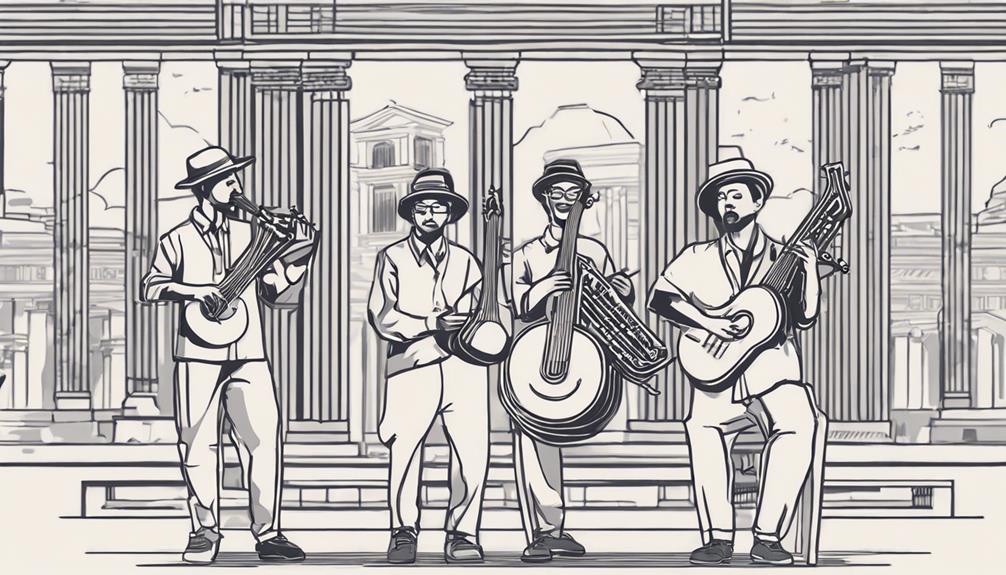
Music plays an integral role in the preservation of cultural heritage by serving as a living archive of traditions, stories, and values passed down through generations. Traditional songs and musical compositions are not mere entertainment but hold historical significance, reflecting the roots and evolution of a culture. Within indigenous communities, music acts as a vital link to ancestral practices, rituals, and beliefs, ensuring their continuity and recognition. Folk music, on the other hand, encapsulates the essence of a community's identity, portraying its unique customs, lifestyle, and worldview. Furthermore, musical instruments and performance styles in different cultures embody cultural identities, showcasing diverse artistic expressions and craftsmanship. Through music, cultural heritage is not just preserved but also celebrated, providing a platform for communities to connect with their past and pass on their legacy to future generations. The intricate melodies, rhythms, and lyrics serve as a testament to the richness and depth of human culture, transcending time and geographical boundaries.
Future Trends in Music and Culture
Future trends in music and culture are on a trajectory towards increased globalization, resulting in a rich tapestry of diverse musical influences. Technological advancements will continue to revolutionize the creation, sharing, and consumption of music across different cultural landscapes. Expect a rise in collaborative efforts between artists of varying backgrounds, leading to a fusion of musical styles and traditions that reflect the evolving cultural landscape.
Music's Cultural Influence
How will the evolving landscape of music and culture intertwine to shape societal norms and values in the coming years? Music and social interactions play a crucial role in fostering understanding among diverse cultures. As we look towards the future, several key trends stand out:
- Continued fusion of diverse musical genres and styles.
- Technology shaping music creation, sharing, and cultural experiences.
- Virtual reality and artificial intelligence enabling interactive music experiences.
- Increasing emphasis on sustainability and social impact within the music industry.
These trends indicate that music will continue to influence cultural narratives and values, promoting collaborations that transcend borders and cultures, ultimately leading to a more interconnected global music landscape.
Cultural Fusion in Music
An increasingly interconnected global landscape is witnessing a noteworthy surge in the phenomenon of cultural fusion within the realm of music, signifying a profound shift towards cross-cultural collaboration and innovation. Cultural fusion in music involves blending diverse musical traditions, genres, and styles from different cultures to create innovative and unique sounds. This trend leads to the development of hybrid music genres that incorporate elements from various cultural backgrounds, fostering cross-cultural understanding and appreciation. Future trends in music and culture suggest a continued rise in collaborative projects among artists from different cultural backgrounds, promoting diversity and inclusivity. By challenging traditional boundaries and stereotypes, cultural fusion in music encourages artists to explore and experiment with new sounds and perspectives, reflecting the interconnected nature of our globalized world where music serves as a powerful medium for cultural exchange and mutual enrichment.
Frequently Asked Questions
How Does Music Impact Culture?
Music profoundly impacts culture by fostering social cohesion and shaping cultural identity. Through emotional expression and storytelling, music transmits values, traditions, and beliefs across generations. It plays a pivotal role in rituals and ceremonies, reinforcing communal bonds and shared experiences. By serving as a medium for communication and connection, music influences the collective psyche of a society, contributing to the fabric of culture and enriching human interactions.
What Are the 3 Roles of Music?
Emotional expression, social bonding, and cultural identity are three pivotal roles of music. Through its melodic language, music becomes a conduit for conveying emotions, enabling individuals to articulate and process complex feelings. Furthermore, music acts as a unifying force, fostering connections and solidarity within communities. Lastly, music serves as a powerful tool for preserving and reinforcing cultural identity, allowing individuals to celebrate and perpetuate their heritage through rhythmic narratives and sonic traditions.
Why Is It Important to Learn About Music From Other Cultures?
Learning about music from other cultures is crucial for fostering cultural exchange, global perspectives, and cross-cultural communication. One interesting statistic reveals that 58% of people believe that exposure to diverse music enhances their understanding and appreciation of different cultures. By embracing music from various backgrounds, individuals can cultivate unity, empathy, and interconnectedness, ultimately enriching their cultural awareness and promoting a harmonious global community.
What Is the Role of Music in the Development of Civilizations?
Music has played a crucial role in the development of civilizations by contributing to their cultural evolution, societal transformation, and historical significance. Through music, civilizations have conveyed their values, beliefs, and traditions, shaping their identity and fostering unity among members. The historical significance of music in civilizations is evident in how it has preserved narratives, transmitted knowledge, and facilitated the continuity of cultural practices across generations.
Conclusion
In conclusion, music serves as a cultural tapestry, weaving together diverse traditions and histories to create a harmonious symphony of human expression. Like a river flowing through time, music carries the essence of our past, present, and future, connecting individuals across boundaries and generations. Its role in culture is essential for fostering unity, preserving heritage, and shaping the societal landscape for generations to come.
